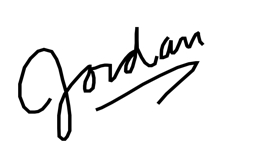
[powerpress]
As artists, how do we crosscheck what we are creating in order to make sure it’s leading us down the right path? In this podcast, Rob Lott shares a simple idea to “only add value.” Value to your audience, your fans, your craft, and yourself. If this is applied toward every creative and personal endeavor moving forward, you will emerge a better artist.
Tweet This:
How do you become a better artist? Resolve yourself to only add value. Click To Tweet
Follow Along:
-
Rob Lott is an actor, puppeteer, director, blogger, and all-around-thinker in Orlando, FL.
- Rob hosts a blog about exploring the intersection of creativity and leadership which he has run for the past few years. He put up a certain post called “Only Add Value” which caught my eye. In it, he compares how large corporations overseeing thousands of employees have adopted a management skill of asking their employees to “only add value.” Rob furthers that by asking,
- “As artists, if our name and our ideas are the product, then as owners, what is our creative and productive policy around what we are putting out into the world? What if we all made the commitment ahead of time, in our art, on our stages, in the direction we give, the performances we produce, the scenes we write, and the stories we tell, what if we decided, even before being asked, that our policy would be that we only add value? How might that change things?”
- These days, social media posts are easily searchable and (sometimes) just as weighted as a resume when on a job search. Being intentional in both your creative career and social media posting will be remembered for a long time.
- Approach everything from a positive place but be prepared to not hit your mark.
- As a director, Rob feels that his cast needs to trust him in order to truly accept notes. He can build an understanding, a history, with them by showing that notes are coming from the best possible place so that he can be more blunt at times (only as needed) and the note will still be taken with a drive to move forward and better the overall performance.
- Rob works for a large creative entity in Orlando and has learned to adjust and enhance his own creativity in order to match the values put in place by his job. For example, most of his puppeteering shows are to a set track… You push play once at the beginning of the performance and all of the puppets will lip-sync. This could tend to get monotonous over time, but Rob has challenged himself throughout the years to focus on the intent leading up to the line. This opens up the creativity for him to try new things while still fitting into the structure provided for him. Similarly, Steph Lynn Robinson discussed adding “walla” to her scenes when she’s recording her voiceover performances.
- Add that intention that you only you can add in that moment in order to bring the pre-written content to life.
- Both Rob and Jordan reminisce about the naïveté of being younger that allowed them to take chances and make choices that separated them from the competition and offering something new and fresh. Once they started learning the “rules,” then now certain choices that are completely genuine and innocent are colored with a sense of rule-breaking.
- Sometimes a way to add value is just to listen, offer eye contact, and support the person with whom you’re working. By connecting and engaging with them, you will add value and, ultimately, improve your product. As a casting director, Rob would match the energy of the person walking into the room and then, through his own energy, guide them to where they needed to be.
- Most creativity cannot be birthed from within a vacuum. Rob (and most artists) relies on collaboration in order to meet the levels of awareness that he needs. Rob uses social media to ask many questions on theater, creativity, and leadership before he processes all of the opinions and writes a new blog post. His engagement levels on his Facebook, especially, are incredibly high and that is because he is actually providing value through his posts rather than blanket statements or silly cat memes with no other purpose than to get likes.
- As a performer, how does Rob filter notes given to him in order to find the kernel of value that may be wrapped in an unfortunate delivery?
- 1. He doesn’t get offended. How? It comes somewhat naturally to him that things can roll off his back.
- 2. He shares a story by Tim Sanders that compares certain events in your life to being handed a whole walnut. Sometimes you have to crack open the shell in order to find what is helpful and good. Listen to what someone is saying before you judge how they are saying it.
- If you allow people to add value to you, you will be that much more motivated to add value to everyone else.
- Don’t ask the question of “Is this adding value?” too early. Trust your gut, trust your instinct, enjoy your naïveté, and move others to act.
Quotes:
Find the positive that is adding value and translate that to other parts of your life. Click To Tweet
By engaging with your creative partner, you will add value and, ultimately, improve your… Click To Tweet
Sometimes you have to crack open the shell in order to find what is helpful and good. Click To Tweet
If you allow people to add value to you, you will be motivated to add value to everyone else. Click To Tweet
Links:
Rob on Facebook | Twitter | Instagram
Download “Today We Are Rich” by Tim Sanders
Thanks for Listening!
Thank you so much for tuning in to my conversation with Rob!
If you enjoyed this episode, please share it using the social media buttons you see at the bottom of the post.
Also, please leave an honest review for SOSstudio Session on iTunes! Ratings and reviews are extremely helpful and greatly appreciated! They do matter in the rankings of the show, and I read each and every one of them.
And finally, don’t forget to subscribe to the show on iTunes to get automatic updates, or visit our podcast download page! It’s free!
Thanks again for joining! Until next time!
Join A Community For Great Songwriters
You’re Independent… but you don’t have to do this alone. Share resources, personal experiences, and artistic feedback with a community of songwriters who want to see each other succeed.

